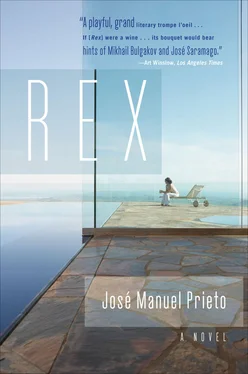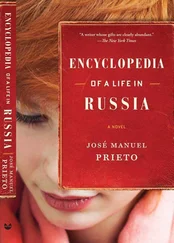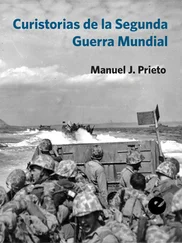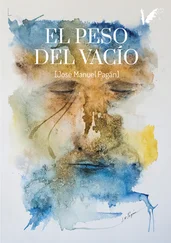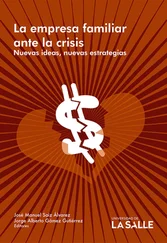Easy, I could tell him now, without having dared to answer him then, neither I nor your mother, but now, full of hate: easy. I myself guiding the plotters through the dark passageways of the palace to Michael of Romania’s quarters, smoking torch in my left hand, katana in my right, to bring an end to his absurd claim in one fell swoop.
5
Imagining and understanding Plato’s wrath in Syracuse as he watched the coast of Sicily recede, his eyes burning with tears, all hope of a Philosopher King gone. Well, not that idiotic Dionysius; not in Syracuse. But a philosopher or scientist king somewhere else: why not? A physicist such as Louis-Victor Pierre Raymond de Broglie, a blood prince with deep knowledge of quantum mechanics, discoverer of the undulating nature of matter: why not call upon him to reign?
Still attempting a solution. Imagining there might be one toward which to direct my steps. Until chance put it in my path, without deep thought or meditation. A solution that at first I believed to be outside the logic of the Book, but then I came to understand that no, steered by it as if along iron rails. Because I saw, Petya, when I left the Marbella station and headed out aimlessly along the Paseo Marítimo, a sign high atop a hotel toward which, when I had read it, without knowing what was guiding my steps, I began making my way with entire and perfect confidence.
Knowing that only thus: the only solution. That the Russians, in Russia, would have noticed the same hotel I’d just noticed, placed their index finger on the glossy photo of the hotel, at the level of the sign several feet high (but diminutive in the photo), certain it was the best, the most luxurious. They from bad taste: it was the Grand Hotel. Me from the taste instilled by the Writer: the Grand Hotel (of Balbec). Easy to convince those tourists to attend a party very close by, along the beach, after the day’s heat had diminished.
And I entered the lobby certain I would find them there, my future guests. But this was what I found, Petya.
6
I found a man — it’s unlikely that he was a gentleman — standing in front of the reception desk who attracted my attention powerfully the minute I walked in. His blond hair and awkward bearing, the ponderousness of a nouveau riche who must constantly give to understand — with his manner of stopping to scan an empty spot between the armchairs in the lobby or speciously consult his watch with an expression of irritation or complacency, depending on whether he was on time or running late — his new status, the importance he’s gained in his own eyes.
The way he speciously straightened the lapels of his raspberry-colored blazer, bringing his chin down close to his chest, his neck tormented by a wide tie that was out of place and out of climate.
And I felt attracted by that unknown face, unknown though familiar — in its general aspect? Touched by a vulgar and predictable taste, smiling through the fluorescent light. I crossed the lobby for a chat, friendly. They always find it odd, let me tell you, to be addressed by me. They are my friends but don’t know it; they deny me and my friendship. Together, I would say to them, in the trenches of socialism! How’s that? In the trenches! The trenches of socialism! But now, almost next to him, I changed my mind, his face clearly illuminated by the massive gold watch that slipped forward on his wrist as he raised the tiny telephone, little blue screen to pink earlobe. The gleam of his too new shoes, unmarked by wear (small and overly elaborate coffins are what such shoes always remind me of when I see them, unworn, in stores). I walked past him and limited myself to calling: Sasha! — a name invented on the spot, any name. He turned in surprise, reached within that beam of light by my call. And without taking the phone from his ear he studied me from head to toe and spat back: “ Nu, i kak banani v etom godu v tvoem Gondurase?” Well, how are the bananas this year in your Honduras? (Or wherever it is you’re from, he meant.)
The cutting phrase, the tone. To the point that I regretted having addressed him. He himself in a rush to abandon the Asiatic depths, little taste for fraternizing with a former ally, all that. Vast zones of his past totally clear to me: breakfasts of cheap sausage not three years ago, hard-boiled eggs in the train’s café car for the two-day trip, a mother and a father back in Russia.
I pretended to have mistaken him for someone else. I said: “I’ve mistaken you for someone else.” And he let it go, knowing I was lying, conscious that my retreat was due to his harsh response, the bulldog hostility he had turned on me.
You don’t want to? Then I don’t either, I explained to him, my eyes fixed on the elevator.
“Kirpich?”
7
I had calculated: a garden party , the effect of fair-haired aides-de-camp fluttering across the grass distributing pamphlets which candidly recounted our plan, your mother’s and my plan, the speed and simplicity with which leaflets can recount and explain the world: the Russian tradition of and love for monarchy, the fervor of a people who despite the errors of an entire century (or of almost a century, almost a century is better, Nelly), that despite the many errors (and horrors! And horrors) had not — ever! — stopped loving and venerating their czars, the imperial family. Who acknowledged the monarchy as the clearest and most natural and most perfect for a country, indisputably identical to the authority of a father.
An inaugural ball, the snobbery such a thing would awaken, that we could churn up around an inaugural ball. The reporters we’d have from many TV channels — guests passing by in the background smiling idiotically at the cameras, so much nonsense to talk. The dresses to describe, the celebrities who’d pose for a photograph with the new king and queen or czars of Russia, the men in tuxedos, the women in long gowns, the hairstyles of the Duchess of York and Athina Onassis, the impossible hats on certain ladies, strange as antigravity engines. The enthusiasm the celebration would generate across the world, the early-morning dash to the kiosk for the front pages, something with which to fill up and structure an otherwise empty Sunday. With this: caravans of Mercedeses (or of Rollses, I’d have to exchange the Mercedes for a Rolls), a policeman’s gloves holding a bouquet of roses, in black and white on the Tribune and in color on the Sun , the miraculous absence of security measures because so beloved a king, because the Russian people, so many years without a king. How enchanting it would be, the enthusiasm it would give rise to, how marvelous it would be to restore the imperial house of Russia.
Now if a true Russian noble had appeared before them he would have struck them as false. Like a young, virginal, and untalented actress who can’t manage to be convincing in the role of a young, virginal girl. We wouldn’t invite the Grand Duchess Maria. The Russian people wouldn’t understand her: a good lady, but a little bit, perhaps just a tiny bit fat, the lumpy figure of the lady in number eleven who goes downstairs to get her milk every morning. Vanquished by Nelly’s breathtaking beauty, very much in the Russian tradition, Petya, your mother, the beauty pageants that Ivan Kalita (or the Terrible) organized in 1547 and in 1561. A great deal of intelligence in that idea of Kalita’s, an absolute sure thing, a solidly historical detail: girls, vestals from across Russia, a beauty contest in all rigor, parading in bathing suits, wreathed in smiles, standing up to Kalita’s interviewers (or Kalita himself) with political platitudes, embracing the winner with false affection (nails long as spears ready to bury themselves in her back), the tears of happiness of the newly chosen czarina. Unerringly the most beautiful and intelligent woman — what doubt could there be? — in the whole country. A strictly historical antecedent, the intelligence and subtlety of the northern Slavs: only the most beautiful queens, only the wisest kings.
Читать дальше
